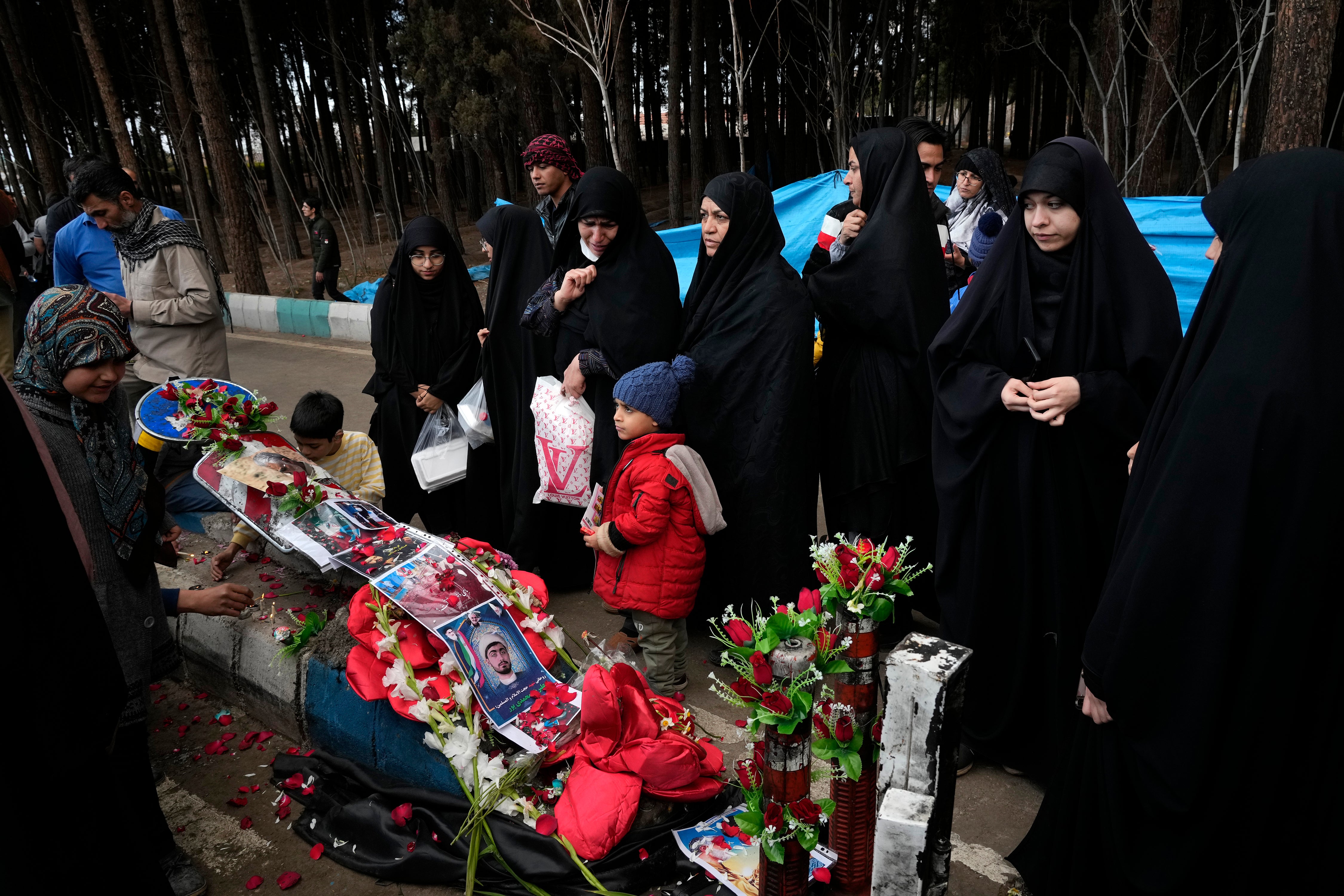Iran does not want a wider war the regime knows it can’t win
Bomb attacks in Iran and the killing of a Hamas leader in Lebanon have fulled fears of Iran escalating conflict in the Middle East. But the regime knows that going up against the military might of the US would cost them dear, writes Camelia Entekhabifard


The two bomb blasts that shook the Iranian city of Kerman this week led to almost 100 deaths and more than 200 injured. The attack – on the fourth anniversary of the killing of Qassem Soleimani – came just one day after Saleh al-Arouri, a Hamas leader, was killed in Lebanon.
Some immediately saw the two events as linked to each other. Both Iranian President Ebrahim Rayisi and Ayatollah Ali Khamenei, the country’s Supreme Leader, condemned the Kerman attacks and immediately accused US and Israel.
This was done before the nature of the explosions and the methods used in them were clear and before investigations had been completed. Subsequently, Isis claimed responsibility.
Iran has enemies on numerous fronts across the West and Middle East. In Lebanon, many consider the domestic crisis in their country, the confrontation with Israel, economic bankruptcy and political inertia to be a fault of the Islamic Republic and its support for Hezbollah.
Ukraine has openly called Iran an enemy after it was one of the first countries to endorse Russia’s invasion. In Afghanistan, elements of Iranian regime have supported the Taliban and helped fund an insurgency that used suicide bombers to kill thousands of Afghan citizens.
When the Iranian regime promise harsh revenge for the perpetrators of the explosion in Kerman, what do they mean by it? Four years ago, when Soleimani, a military officer who served in the Islamic Revolutionary Guard Corps, was killed by the US, there was also a lot of talk about revenge then, too.
On that night, millions of Iranians couldn’t sleep, worried about a war breaking out with the US. The IRGC missiles didn’t hurt American soldiers but they hit passengers aboard an Ukrainian airliner, which killed all 176 on board.
This time around, too, Iran will not take any retaliatory action to avenge the blood of almost 100 Iranians killed in the Kerman explosions and – more importantly – it will not involve itself in any international crises or war against foreign countries.
Ayatollah Khamenei’s main reason for avoiding war is survival of the regime. History shows that it has repeatedly avoided conflict. The most recent example is the Hamas war with Israel.
Khamenei wasn’t even willing to bring out Hezbollah in support of Hamas. Hassan Nasrallah, its secretary general, reacted to al-Arouri’s assassination by stating that Hezbollah has already been at war with Israel since the 7 October attacks in Israel. In other words, he was saying Hamas would not do anything more than they had already done, even after a leading Hamas official and other commanders accompanying him were killed in southern Lebanon.
For Khamenei and his supporters, the life of Soleimani, the military strategist and leading commander of IRGC, was considered much dearer than hundreds of thousands of Iranians. Their harsh revenge for his assassination was limited to shooting 18 “harmless” missiles at a semi-dormant base in Iraq.
Fighting America head-on is no joke. They’ve understood this well and won’t accept it at any price.
The Islamic Republic has two upcoming elections: one for the parliament and the other for the Assembly of Experts. Given Khamenei’s age and course of events in Iran and the region, I believe he is trying to avoid the Islamic Republic from getting into military conflicts.
But for people who hate this regime, this government has long collapsed. As Amir Taheri, the Iranian-born journalist and author, said recently in an interview, this regime has long died and is waiting to collapse.
With the same interpretation, we can say that the officials of the Islamic Republic consider the war with US and Israel to be the main threat to their survival. They will avoid it. But their main enemies, i.e. the people of Iran, are those that will ultimately cause their collapse.






Join our commenting forum
Join thought-provoking conversations, follow other Independent readers and see their replies
Comments